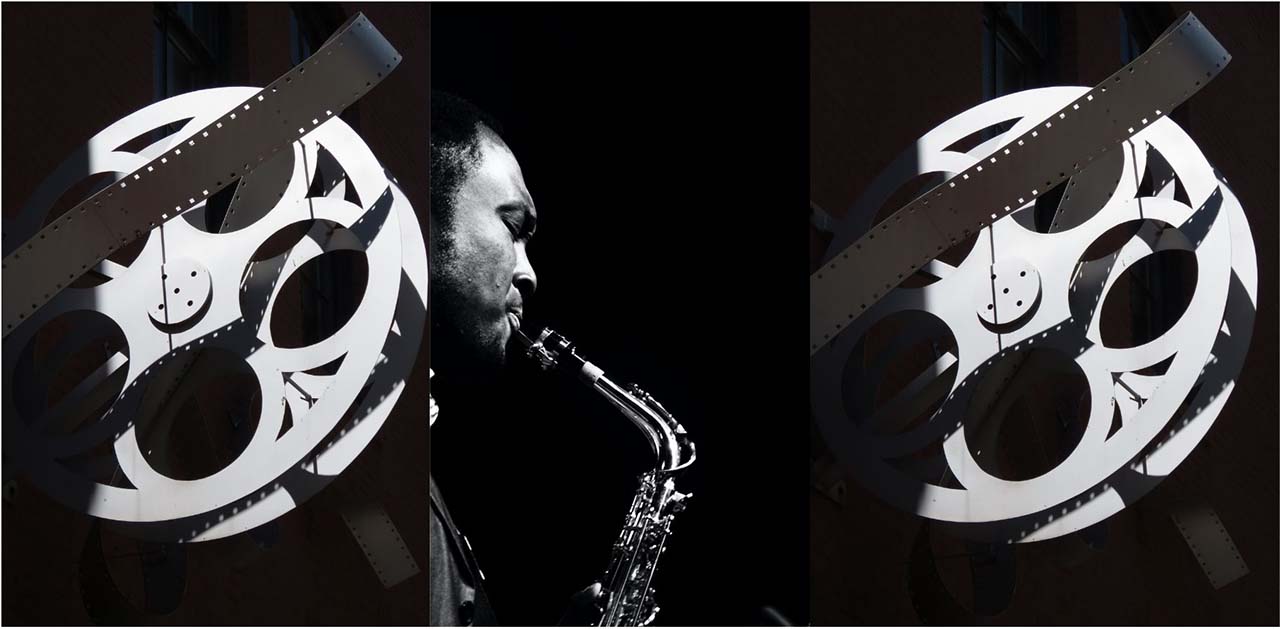The Carr Center’s New Film Series Goes In-Depth about Jazz as a Visual Art Form
The five-part virtual JAZZ on FILM series runs weekly at 7:30 p.m. Tuesdays through Nov. 2.

There are elements in the jazz art form that evoke imagery, conjure up nostalgic memory and flow in the freedoms of improvisation.
“If you really listen to the music, you can understand that the artists are having a conversation with other artists,” says Marcus Turner, assistant professor of filmmaking and director of Undergraduate Media Studies at The New School University in New York.
“A lot of jazz is straight communication through improvisation. And because this music is improvised, it comes from their heart. It comes from their soul,” Turner says. “That’s why a lot of people feel that jazz is a sound of your spirit talking.”
“The two art forms, they kind of grew up together. They kind of got started around the same time period, in the late 1800s and began to bloom in the beginning of the 19th century.” Marcus Turner, The New School
Turner, whose work in the classroom centers on the intersection of jazz music and early cinema, conceptualized and curated The Carr Center’s Jazz on Film series, which explores the “symbiotic relationship” between the two art forms and also kicks off programming for the organization’s 30th anniversary year.
Through themed screenings and conversations, hosted by resident artist Juanita Anderson, the series dives into the parallels of jazz and movies with focus on: Jazz as Color and Images, Symbiosis, Classic Black, Jazz as Muse: Improvisation and Jazz as Muse in Narrative Film.
“The two art forms, they kind of grew up together. They kind of got started around the same time period, in the late 1800s and began to bloom in the beginning of the 19th century,” Turner notes. “At the time jazz was called swing [and] it was really the most popular music in the land.”
Turner shares that leaders of the big band include the likes of Duke Ellington, Louis Armstrong and the Dorsey Brothers. Identifying them as major stars of the sound and era, he highlights that their music was used in all types of films from dramas to crime films and biopics.
At the conclusion of Jazz on Film, Turner hopes people come away with a deeper understanding of the genre’s influence on the fabric of life and its spiritual connection.
“If you’re going to be true to yourself and you let your soul reveal itself to other people, that’s showing them your spirit. These musicians, we get a sense of who they are and how they feel through the expression of their music,” he says, adding, “I’m really hopeful that people get a greater appreciation of the music and how the music can be used sonically with images to help tell a story.”
The Carr Center Jazz on Film Series runs weekly at 7:30 p.m. Tuesdays through Nov. 2. Register for free here. Next up is: Alice Coltrane: A Love Supreme
Trusted, accurate, up-to-date.
WDET strives to make our journalism accessible to everyone. As a public media institution, we maintain our journalistic integrity through independent support from readers like you. If you value WDET as your source of news, music and conversation, please make a gift today.
